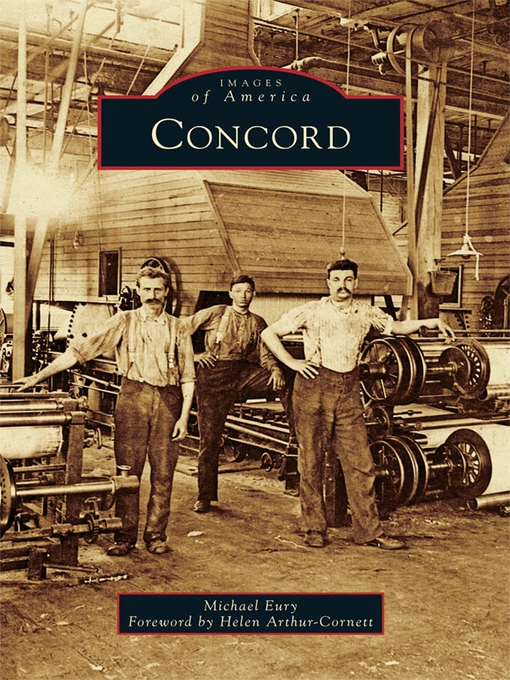When state legislator Stephen Cabarrus sought a compromise between quarreling Scotch-Irish and German settlers over the location of Cabarrus County's seat, his appeal led to a "concord" that gave birth to one of North Carolina's most charming cities. Not long after its 1796 founding, Concord began a transformation from an agricultural community into a textile-manufacturing mecca as captains of industry built empires exploiting the cotton that so abundantly sprouted from the region's fruitful soil. By the advent of the 1900s, textiles' prosperity encouraged an architectural renaissance within Concord's downtown, where the stately buildings, churches, and residences still stand today. While the cotton mills that made Concord famous are no more, the city has transitioned into a fast-paced motorsports center and the home of North Carolina's most popular tourist destination, Concord Mills shopping mall.
- New eBook additions
- Available now --eBooks
- New kids additions
- New teen additions
- Most popular
- Try something different
- Guides to Antiracism
- In the Garden
- North Carolina History
- See all
- New audiobook additions
- New kids additions
- New teen additions
- Available now --Audio
- Try something different
- Audiobooks with Great Narrators
- Short & to the Point--Audiobooks under 3 Hours
- Audiobooks for the Whole Family
- Most popular
- See all
- Popular Magazines
- Let's Get Cooking!
- News and Politics
- Lifestyle Magazines
- Spanish Language Magazines
- All Magazines
- Business and Finance
- Kids and Teens Magazines
- Science
- Family and Parenting
- Tech and Gaming
- Home and Garden
- Hobbies and Crafts
- See all

